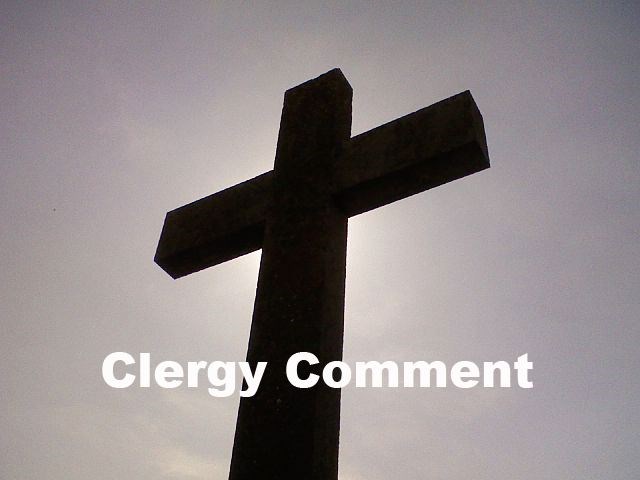My dad died in November of pancreatic cancer. We joined together and celebrated his life and ministry recently, on Jan. 12. The whole journey with my dad, from diagnosis in August 2016 to death that November, caused me to reflect on this very normal and everyday experience that is part of who we are.
People die. In fact, approximately 737 people died in Canada in 2016 every day. Every. Day. In that sense my experience wasn't unique, far from it, and yet somehow knowing that 736 other families received the same news that I did doesn't provide me with much comfort. It certainly doesn't give me any hope or joy.
For me it was very helpful to know that people were holding my family in prayer. Just knowing that I was part of a larger community was helpful in its own way. It gave me strength and comfort, courage and solace.
Dad's disease wasn't kind. It was quick, maybe too quick. It made him unrecognizable to people who knew him. It changed his personality, yet, while that is certainly part of the narrative, it is by no means the full story.
Sir Winston Churchill once wrote, "Death is only an incident, and not the most important one which happens to us in the state of being." Death is only an incident, yet it would be folly to underestimate its importance and impact. The impact of Dad's death is complex and convoluted in many ways. Our relationship had its share of turbulence. Did we love one another? Yes. Does that mean it was always easy? No.
Grieving is hard work. Anyone who says otherwise is wrong. It's a process, yet each person experiences these steps in a different sequence, over different amounts of time, and sometimes repeats steps. It's anything but a clean linear logical experiences. It's messy, emotional, chaotic, distracting, hard, tiring, and, at times, debilitating.
But here's what I've learned through the support of my church community: the deeper the grief, the deeper the relationship; the deep the relationship, the bigger the hope.
I think this is what the Apostle Paul was trying to say in 1 Thessalonians 4, that we're "not to be uniformed about those who sleep in death, so that [we do] not grieve like the rest of humankind, who have no hope." My grief is deep, yet I've been able to journey into the depth of that grief because I have hope that is deeply rooted in the Christian tradition and witness. I can walk to the back of the tomb where it is darkest and coldest, because I know that Easter is more transformative. I can fully immerse myself in memories, in thoughts of what is now to never be, because I know that I am not alone.
I hope that as you read this you find encouragement in dealing with whatever grief you encounter and that you find a community to support and uphold you when you need it most. If you find yourself without such a community please know that, as the ending of The United Church of Canada Creed states, "in life, in death, in life beyond death, we [you and I] are not alone. Thanks be to God."



